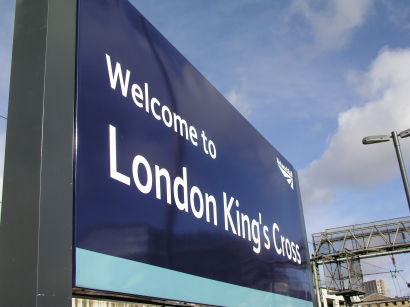THE failure of the Virgin Trains East Coast franchise is set to be scrutinised in depth, while the Department for Transport has launched the task of changing over to a new state-owned operator, to be known as LNER, on 24 June.
Transport secretary Chris Grayling set out the terms of the new arrangements in the House of Commons. He told MPs: “Stagecoach and Virgin Trains got their bid wrong and they are now paying a price. They will have lost nearly £200 million meeting their contracted commitments.
“This means taxpayers have not lost out because revenues are lower than predicted: only Virgin Trains East Coast and its parent companies have made losses at this time.”
Mr Grayling said he had considered the competing options of a Direct Award and the alternative Operator of Last Resort. He continued: “The analysis suggested the case was very finely balanced, with some elements favouring a contract with the existing operator and others favouring the Operator of Last Resort. When judging against my key principles, neither option was obviously superior.
“There is another factor that I have taken into account. I want to make the smoothest possible transition to the creation of the new East Coast Partnership. So given the finely balanced judgement, I have taken into account broader considerations and decided to use the current difficulties to drive our long-term plans for the East Coast Partnership. I have decided to begin the transition process towards creating the new partnership now.”
Stagecoach, meanwhile, is ‘disappointed’. Chief executive Martin Griffiths said: “We believe our plans offered a positive, value-for-money way forward for passengers, taxpayers and local communities, ensuring the continuation of the exciting transformation already underway on East Coast and a smooth transition to the Government’s new East Coast Partnership.
“However, we respect the Government’s decision. We will work constructively with the DfT and the OLR in the weeks ahead to ensure a professional transfer.”
Meanwhile the spotlight will be turned on the remains of what should have been an innovative and exciting franchise as soon as Monday, when the House of Commons Transport Committee will begin to take evidence. Witnesses will include Lord Adonis, who as transport secretary in the last Labour government supervised the previous nationalisation of East Coast in 2009, after National Express Group had also been unable to pay the premiums in its contract.
The Committee said the bidding process, the management of financial risk and uncertainty, the role of Network Rail, future operating arrangements and the wider franchising system are all likely to be covered in its forthcoming inquiry.
Lord Adonis was known to be angry with National Express in 2009, and explored legal options for banning the Group from bidding again. He was advised not to do so, but National Express has since departed voluntarily from the British rail franchise sector by selling c2c to Trenitalia last year.
Stagecoach and Virgin have survived the latest East Coast collapse, however. Mr Grayling told MPs: “I have also taken official advice about the future of the passports currently held by Virgin Holdings and Stagecoach, determining whether they are fit and proper to operate on our railways.
“A multi-disciplinary panel has considered the situation and recommended that both companies continue as train operators. They have advised that there is also no suggestion of either malpractice or malicious intent in what has happened.”
Analysis
Sim Harris
TRANSPORT secretary Chris Grayling has been forced to renationalise a franchise, something which a Conservative government has never done before, after several months of negotiations with Stagecoach and Virgin over the terms of an emergency Direct Award for East Coast failed to reach agreement.
Martin Griffiths of Stagecoach said that the franchise had been ‘negotiating a new Direct Award franchise with the DfT’ but evidently these negotiations failed, leaving Mr Grayling with no alternative.
The development will have been deeply unwelcome to a government which is trying to restore some confidence in the franchising system, following withdrawals by a number of bidders.
The most recent of these involved a consortium of FirstGroup and Trenitalia, which abandoned its bid for the East Midlands competition on 23 April this year, while two bidders have also withdrawn from the competition for Wales & Borders, including the incumbent Arriva. Mr Grayling may have reason to be thankful that the management of the next W&B franchise has been devolved to the Welsh Government.
Closer to London, however, the collapse of Virgin Trains East Coast will have implications for many months to come, with the Commons Transport Committee now set to ask questions not only about the East Coast problems but also ‘the wider franchising system’.
The collapse has also encouraged those critics who are calling for renationalisation of the passenger railway.
Labour’s shadow transport secretary Andy McDonald said: “Privatised rail is broken beyond repair yet the Tories are still handing these services back to the private sector because they are wedded to a broken free market ideology.
“Private operators have failed three times in under a decade on the East Coast route, the last time resulting in a £2 billion taxpayer bailout. The East Coast partnership announced is a smokescreen from a government which has run out of ideas on rail.”
The Rail Delivery Group is also conceding that it is time for a rethink, although it has stopped well short of advocating renationalisation.
Chief executive Paul Plummer said: “There is an opportunity to reform the franchising system for the long-term so it can deliver more for customers, communities, taxpayers and the economy. We will work with governments to make a success of the East Coast partnership while also setting out a bold vision for the future of franchising to benefit Britain.”
The shape of the new East Coast Partnership has yet to be decided. As the Govia Thameslink franchise will be broken up next time round, LNER could eventually inherit the Great Northern suburban services from London King's Cross.


